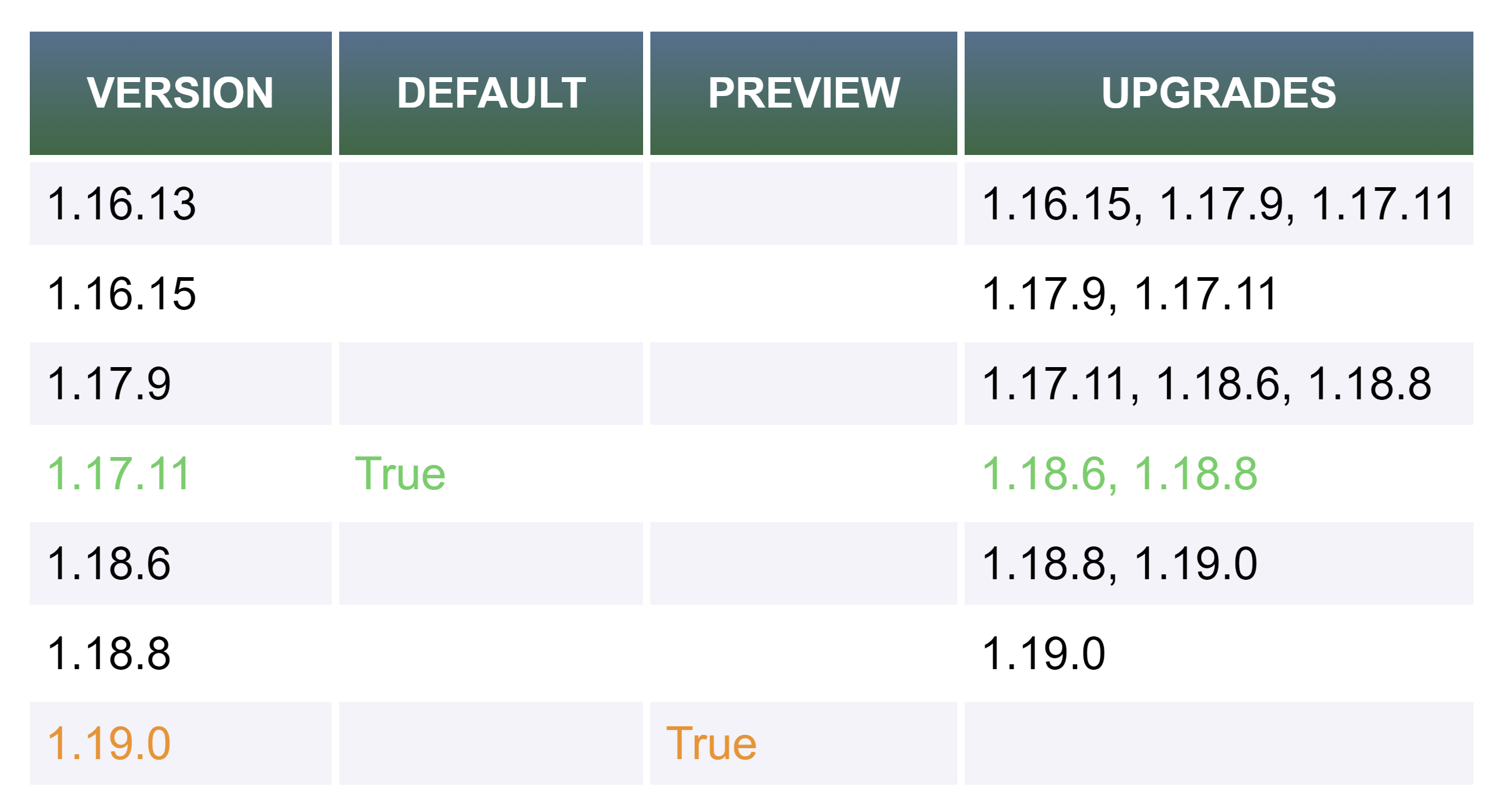Azure Kubernetes Service (AKS) supports specific versions of Kubernetes.
It is necessary to regularly monitor the release of new versions and upgrade your AKS clusters to supported versions in order to remain in compliance with AKS Kubernetes Version Support Policy.
AKS announces the planned date of a new minor version release and corresponding old version deprecation via AKS Release notes at least 30 days prior to removal. An email notification is sent to the subscription administrators with the planned version removal dates. You get 30 days from version removal to upgrade to a supported minor version release. Patch versions can be released anytime and you get 30 days from the removal date to upgrade to a supported patch version.
You should test new target Kubernetes versions and upgrade your AKS clusters in a timely manner. For that, it is necessary to proactively monitor the AKS release notes. This can easily become a chore in a large Enterprise environment. Here is a Powershell script to make it easier to stay on top of Kubernetes version releases in AKS and publish/share it with others: Get-AksSupportedVersions.
$aksVersionsJson = az aks get-versions --location eastus
$aksVersions = $aksVersionsJson | ConvertFrom-Json
$aksVersions.orchestrators.upgrades.orchestratorVersion
$data = $aksVersions.orchestrators | Select-Object `
-Property @{Name="Version";Expression={$_.orchestratorVersion}} `
, @{Name="Default";Expression={$_.default}} `
, @{Name="Preview";Expression={$_.isPreview}} `
, @{Name="Upgrades";Expression={$_.upgrades.orchestratorVersion -join ", "}}
$versionTable = $data | ConvertTo-Html -Fragment
$versionTableString = $versionTable | Out-String
$html = New-Object -ComObject "HTMLFile"
$html.IHTMLDocument2_write($versionTableString)
$tables = $html.body.getElementsByTagName("table")
$rptString = ""
ForEach($table in $tables){
ForEach($row in $table.rows){
$cellCount = 0
ForEach($cell in $row.cells){
$cellCount++
if(($cellCount -eq 2) -and ($cell.innertext -eq 'True'))
{
$row.className = "OkStatus"
}
if(($cellCount -eq 3) -and ($cell.innertext -eq 'True'))
{
$row.className = "WarningStatus"
}
}
}
$rptString += $table.outerHTML
}
$reportDate = $(get-date -DisplayHint DateTime) | Out-String
$fileTS = $(get-date -Format "yyyyMMdd")
$fileName = "aks-versions-$fileTS.html"
$rptTitle = "<h1>AKS Kubernetes Versions</h1><p>$reportDate</p>"
$report = ConvertTo-Html -Title "AKS Versions" -Body "$rptTitle $rptString" -Head $header
$report | Out-File "$fileName"It creates an HTML report of currently supported Kubernetes versions in AKS along with their respective upgrade paths. Here is an example of the report generated by the script referenced above :
AKS Kubernetes Versions
Sunday, November 8, 2020 8:47:42 PM
| Version | Default | Preview | Upgrades |
|---|---|---|---|
| 1.16.13 | 1.16.15, 1.17.9, 1.17.11 | ||
| 1.16.15 | 1.17.9, 1.17.11 | ||
| 1.17.9 | 1.17.11, 1.18.6, 1.18.8 | ||
| 1.17.11 | True | 1.18.6, 1.18.8 | |
| 1.18.6 | 1.18.8, 1.19.0 | ||
| 1.18.8 | 1.19.0 | ||
| 1.19.0 | True |
Reference: How To Create An HTML Report With PowerShell
